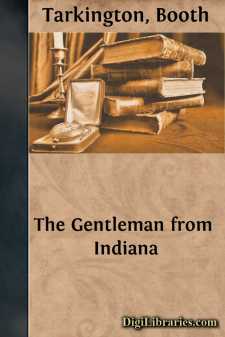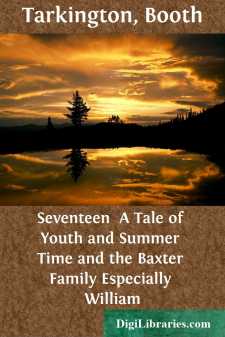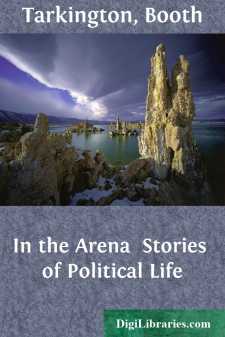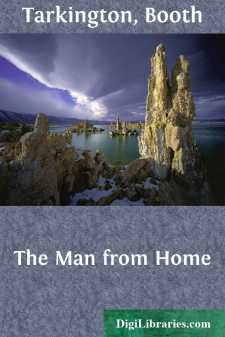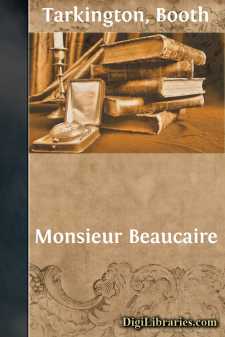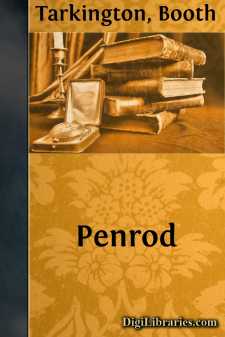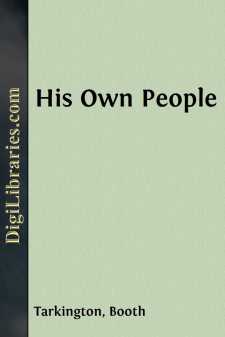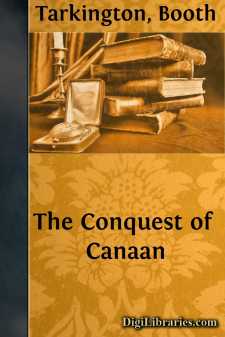Categories
- Antiques & Collectibles 13
- Architecture 36
- Art 48
- Bibles 22
- Biography & Autobiography 813
- Body, Mind & Spirit 142
- Business & Economics 28
- Children's Books 15
- Children's Fiction 12
- Computers 4
- Cooking 94
- Crafts & Hobbies 4
- Drama 346
- Education 46
- Family & Relationships 57
- Fiction 11828
- Games 19
- Gardening 17
- Health & Fitness 34
- History 1377
- House & Home 1
- Humor 147
- Juvenile Fiction 1873
- Juvenile Nonfiction 202
- Language Arts & Disciplines 88
- Law 16
- Literary Collections 686
- Literary Criticism 179
- Mathematics 13
- Medical 41
- Music 40
- Nature 179
- Non-Classifiable 1768
- Performing Arts 7
- Periodicals 1453
- Philosophy 64
- Photography 2
- Poetry 896
- Political Science 203
- Psychology 42
- Reference 154
- Religion 513
- Science 126
- Self-Help 84
- Social Science 81
- Sports & Recreation 34
- Study Aids 3
- Technology & Engineering 59
- Transportation 23
- Travel 463
- True Crime 29
The Gentleman from Indiana
by: Booth Tarkington
Description:
Excerpt
CHAPTER I. THE YOUNG MAN WHO CAME TO STAY
There is a fertile stretch of flat lands in Indiana where unagrarian Eastern travellers, glancing from car-windows, shudder and return their eyes to interior upholstery, preferring even the swaying caparisons of a Pullman to the monotony without. The landscape lies interminably level: bleak in winter, a desolate plain of mud and snow; hot and dusty in summer, in its flat lonesomeness, miles on miles with not one cool hill slope away from the sun. The persistent tourist who seeks for signs of man in this sad expanse perceives a reckless amount of rail fence; at intervals a large barn; and, here and there, man himself, incurious, patient, slow, looking up from the fields apathetically as the Limited flies by. Widely separated from each other are small frame railway stations—sometimes with no other building in sight, which indicates that somewhere behind the adjacent woods a few shanties and thin cottages are grouped about a couple of brick stores.
On the station platforms there are always two or three wooden packing-boxes, apparently marked for travel, but they are sacred from disturbance and remain on the platform forever; possibly the right train never comes along. They serve to enthrone a few station loafers, who look out from under their hat-brims at the faces in the car-windows with the languid scorn a permanent fixture always has for a transient, and the pity an American feels for a fellow-being who does not live in his town. Now and then the train passes a town built scatteringly about a court-house, with a mill or two humming near the tracks. This is a county-seat, and the inhabitants and the local papers refer to it confidently as "our city." The heart of the flat lands is a central area called Carlow County, and the county-seat of Carlow is a town unhappily named in honor of its first settler, William Platt, who christened it with his blood. Natives of this place have sometimes remarked, easily, that their city had a population of from five to six thousand souls. It is easy to forgive them for such statements; civic pride is a virtue.
The social and business energy of Plattville concentrates on the Square. Here, in summer-time, the gentlemen are wont to lounge from store to store in their shirt sleeves; and here stood the old, red-brick court-house, loosely fenced in a shady grove of maple and elm—"slipp'ry ellum"—called the "Court-House Yard." When the sun grew too hot for the dry-goods box whittlers in front of the stores around the Square and the occupants of the chairs in front of the Palace Hotel on the corner, they would go across and drape themselves over the court-house fence, under the trees, and leisurely carve there initials on the top board. The farmers hitched their teams to the fence, for there were usually loafers energetic enough to shout "Whoa!" if the flies worried the horses beyond patience. In the yard, amongst the weeds and tall, unkept grass, chickens foraged all day long; the fence was so low that the most matronly hen flew over with propriety; and there were gaps that accommodated the passage of itinerant pigs....


